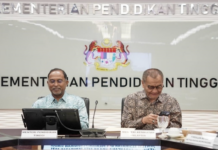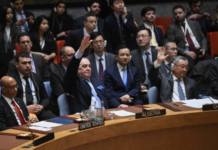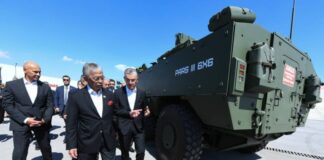KUALA LUMPUR, July 8 (Bernama) — Economists have opined that Bank Negara Malaysia’s (BNM) decision to maintain the Overnight Policy Rate (OPR) at 1.75 per cent today may signal the central bank’s intention to give time for the government’s fiscal policy to have an impact on the economy.
Juwai IQI chief economist Shan Saeed said at present, BNM is taking the back seat, giving way for the government to be at the front in terms of stimulus packages, of which about seven have been announced since last year.
“I think if the central bank sees that the economy needs further support (aside from the stimulus packages), they might decrease (the OPR in the future),” he told Bernama.
He said economies globally have fiscal and monetary policies that come into play during these challenging and uncertain times.
“You need a fiscal policy to stimulate growth. You need the monetary policy to boost the business sentiments and domestic consumptions.
“One policy alone cannot do the magic. Every policy has got certain limitations. It can make an impact on the economy but beyond a certain level, it can’t make any impact,” he said.
Shan said last year, the central bank cut the OPR by 125 basis points in total and it would take at least 12-15 months to make an impact on the economy.
“Any policy lever of instruments that BNM undertakes would take about 12-15 months (to make impact),” he said.
He said at the moment, what is concerning for the government is to keep the business sentiment strong and the domestic demand intact, and for this, the government is giving various stimulus packages.
“In order to create or maintain that momentum of people consuming and buying domestically, they are giving all these fiscal stimulus packages,” he said.
Meanwhile, Bank Islam Malaysia Bhd chief economist Mohd Afzanizam Abdul Rashid said BNM’s Monetary Policy Committee remains guarded as to how the resurgence of COVID-19 new cases could play out in the near term and how it might affect decisions on lockdown measures and impact on economic activities.
“BNM has made it quite clear that inflation is not the immediate concern given that it is likely to be transitory, implying that the option to provide additional monetary accommodation is widely open.
“However, we believe BNM may want to put the OPR on hold for as long as possible as it may want to conserve its policy space. We are inclined to put OPR at 1.75 per cent throughout the year,” he added.
In the meantime, Sunway University’s Professor Dr Yeah Kim Leng said BNM’s assessment and unchanged policy rate could lend support to the view that the country’s economic recovery might be dented but is unlikely to be derailed by the virus resurgence.
“The central bank’s decision to maintain the OPR is in line with the expectations of the majority of market economists and analysts.
“It has noted the pick-up in economic activities in the first four months of the year and also recognised the dent to the recovery momentum caused by the latest lockdown, but remains sanguine about the recovery prospects through next year,” he added.



















